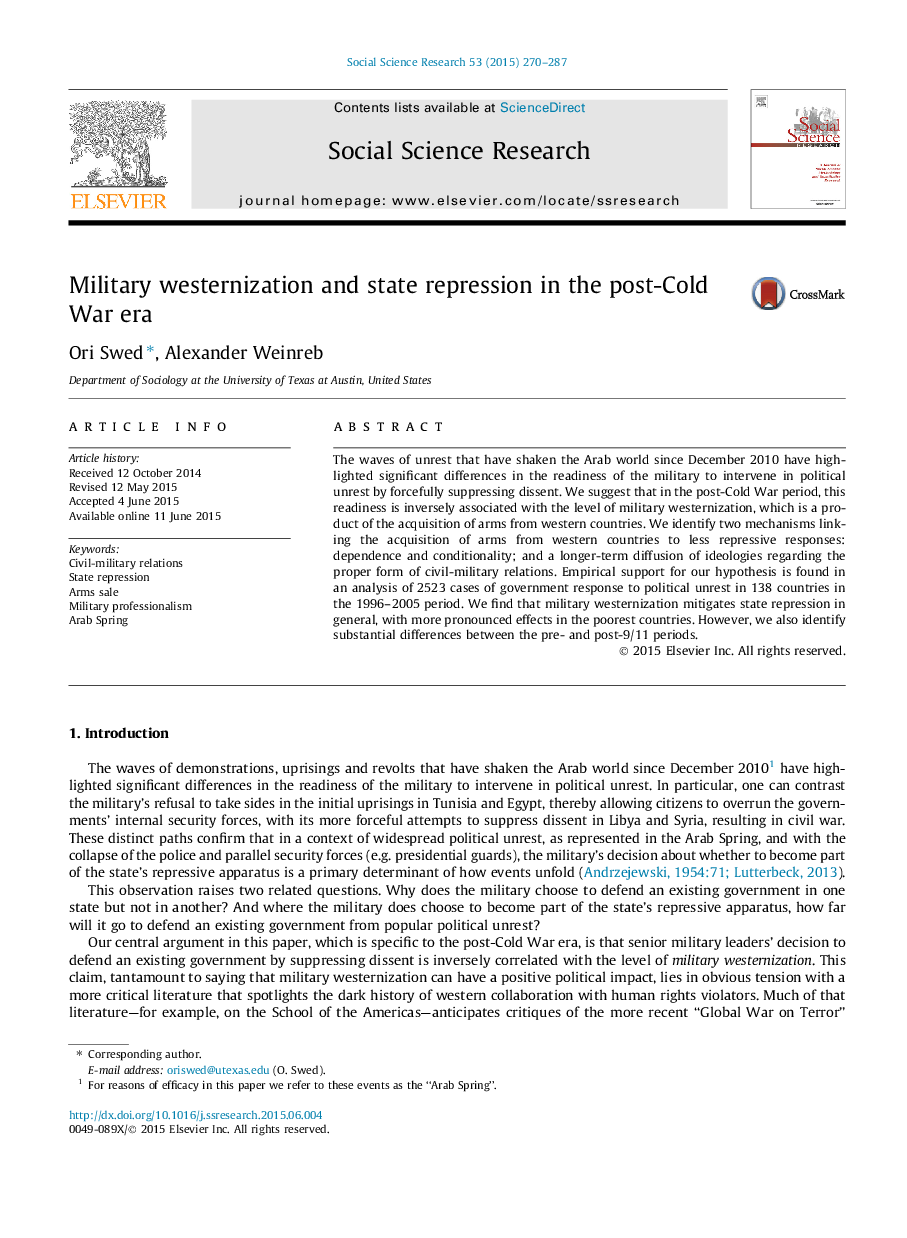| کد مقاله | کد نشریه | سال انتشار | مقاله انگلیسی | نسخه تمام متن |
|---|---|---|---|---|
| 955670 | 1476122 | 2015 | 18 صفحه PDF | دانلود رایگان |
• Two mechanisms link arms-buying from Western countries to “military westernization”.
• Military westernization (MW) reduced civilian casualties in the Arab Spring.
• MW reduced civilian casualties in a global sample of political unrest 1996–2005.
• The effects of MW on civilian casualties are stronger in poor countries.
• The Global War on Terror weakened the impact of MW.
The waves of unrest that have shaken the Arab world since December 2010 have highlighted significant differences in the readiness of the military to intervene in political unrest by forcefully suppressing dissent. We suggest that in the post-Cold War period, this readiness is inversely associated with the level of military westernization, which is a product of the acquisition of arms from western countries. We identify two mechanisms linking the acquisition of arms from western countries to less repressive responses: dependence and conditionality; and a longer-term diffusion of ideologies regarding the proper form of civil-military relations. Empirical support for our hypothesis is found in an analysis of 2523 cases of government response to political unrest in 138 countries in the 1996–2005 period. We find that military westernization mitigates state repression in general, with more pronounced effects in the poorest countries. However, we also identify substantial differences between the pre- and post-9/11 periods.
Journal: Social Science Research - Volume 53, September 2015, Pages 270–287
